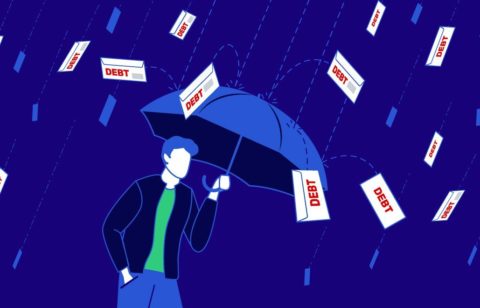Now and then the news breaks that the government in Washington is on the verge of a shutdown, and suddenly it’s the only thing the big news networks want to cover. And almost every time it seems to vaguely include some kind of fight about the federal budget and the US debt ceiling. Usually the crisis is avoided and it all becomes yesterday’s news pretty quickly. Much ado about nothing. But make no mistake: This isn’t just politics as usual. A debt ceiling crisis poses real challenges that could have consequences for ordinary Americans.
What is the Debt Ceiling?
So, what exactly is this debt ceiling? In simple terms, it’s a legal limit on how much money the government can borrow. Think of it like a national credit card limit. The United States government has been borrowing and spending for decades, racking up debt faster than it can pay it back. As it nears the limit, the consequences of maxing out or defaulting are serious.
The Consequences of Reaching the Debt Ceiling
If the government reaches the ceiling and doesn’t raise it, two things may happen: The government may raise taxes and/or cut spending. Let’s break down the potential outcomes:
- Tax Hikes: To generate more income, Congress may have to raise taxes. This means less money in your pocket.
- Budget Cuts: The government may tighten its own belt and slash spending on the services we all need. Healthcare programs could face cuts, leading to a loss of care for some and higher costs for many. Education budgets may shrink, too, impacting the quality of schools.
- Worst-Case Scenario: If tax hikes and budget cuts fail, the government would default on its debts. And if the government can’t pay its bills, it could trigger larger financial challenges for the country and its people.
What can we do about the national debt ceiling?
It’s not all bad news when it comes to the national debt ceiling. There are ways that you can help prevent or prepare for a potential national debt default.
- Demand Fiscal Responsibility: You can advocate for policies that help the economy grow without accruing more debt by staying informed and contacting your government representatives about fiscal issues. When it comes time to hit the ballot box, know who you’re voting for and understand their policies. And resist the temptation to change the channel the next time the news starts discussing the debt ceiling. Informed citizens can influence the course of economic policy.
- Build Your Financial Fortress: This isn’t just a political issue, it’s a personal one. Prepare for potential economic turbulence by diversifying your retirement accounts, building an emergency fund and managing your debt wisely. Financial literacy is your best asset.
The debt ceiling crisis isn’t an inevitable disaster. We can avoid it by demanding responsible leadership, saving wisely and staying engaged in the political process. We can work together to build a more secure future for ourselves and generations to come.







